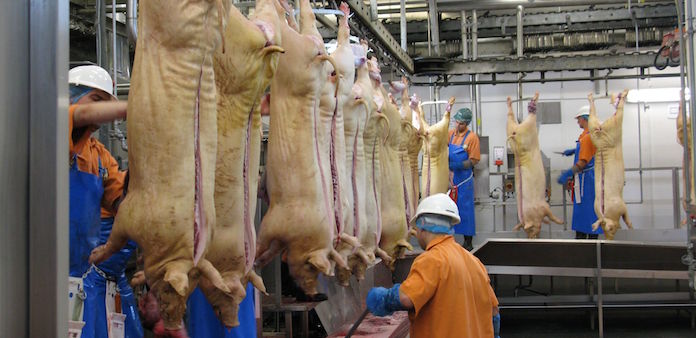NPA chief executive Zoe Davies has expressed industry concerns over the Government’s pig industry support package, as key elements of it opened today.
The Private Storage Aid and Slaughter Incentive Payment schemes, announced as part of the October support package to help processors increase throughput and therefore reduce the backlog of pigs on farm, are now both officially open
However, speaking on Radio 4’s Farming Today programme this morning, Dr Davies highlighted concerns that, with processors now saying they will not be using it until the New Year, the Private Storage Aid scheme might not deliver on its aims, particularly in the vital short-term. She said it ‘should have been thought through better’.
- You listen to the interview HERE (from 8 mins, 40 seconds).
“Government designed the scheme to get pigs off farms, not to help out the processors. But processors wouldn’t use the scheme if they had to take on too much risk as they saw it, in terms of putting product into storage with bone-in that they couldn’t market it when it had to come out,” she said.
Dr Davies said producers were still in limbo, with the situation on farms ‘getting worse’, with welfare culling underway, but producers also discussing with vets the option of aborting piglets before they are born.
“The pig backlog is still as significant as it was – the processors are still not taking contracted numbers, which means there are bigger and bigger pigs. Initially, some producers were forced to start killing piglets, which is an awful thing for people to have to do.
“Some people have now started having discussions with their vets about having to abort piglets from sows. I am disgusted that this is even having to be discussed.”
Echoing the sentiments in a letter sent by NPA chair Rob Mutimer to Defra Secretary George Eustice, she called for ‘proper oversight’ of the Government’s measures to ensure they work as originally intended in terms of getting pigs off farms as soon as possible.
Defra said: “We have been working closely with the pig industry in order to understand how best to support them.”




